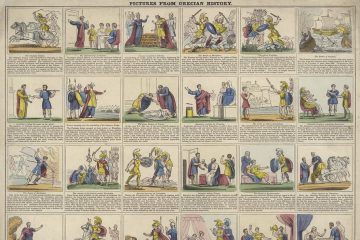Barbara Graziosi at the TLS:

Children ask “why” – and so does Herodotus (484–25 BCE). The “father of history”, often strikes readers as a little childish, particularly in comparison with his younger contemporary Thucydides (460–395 BCE), whose History of the Peloponnesian War offers a disenchanted account of human conflict. But, even leaving aside that much-rehearsed comparison, there are features of Herodotus’ work that can make it sound naive. For one thing, he seems interested in everything – not just why the Greeks and the Persians “came to war with one another” (the avowed subject of his Histories), but also “why the people of Libya are the most healthy known to us”; “why the most timid animals are the most prolific”; “why the Nile floods in summer … contrary to the nature of all other rivers”; “why, concerning the bones strewn on the battlefield … the skulls of Persian casualties are so brittle they can be broken with a pebble, whereas Egyptian skulls are so tough they can hardly be cracked with a big stone”; or again why, on a particular night, “a pride of lions attacked only the camels, and none of the other beasts of burden or the men or the provisions”.
more here.
